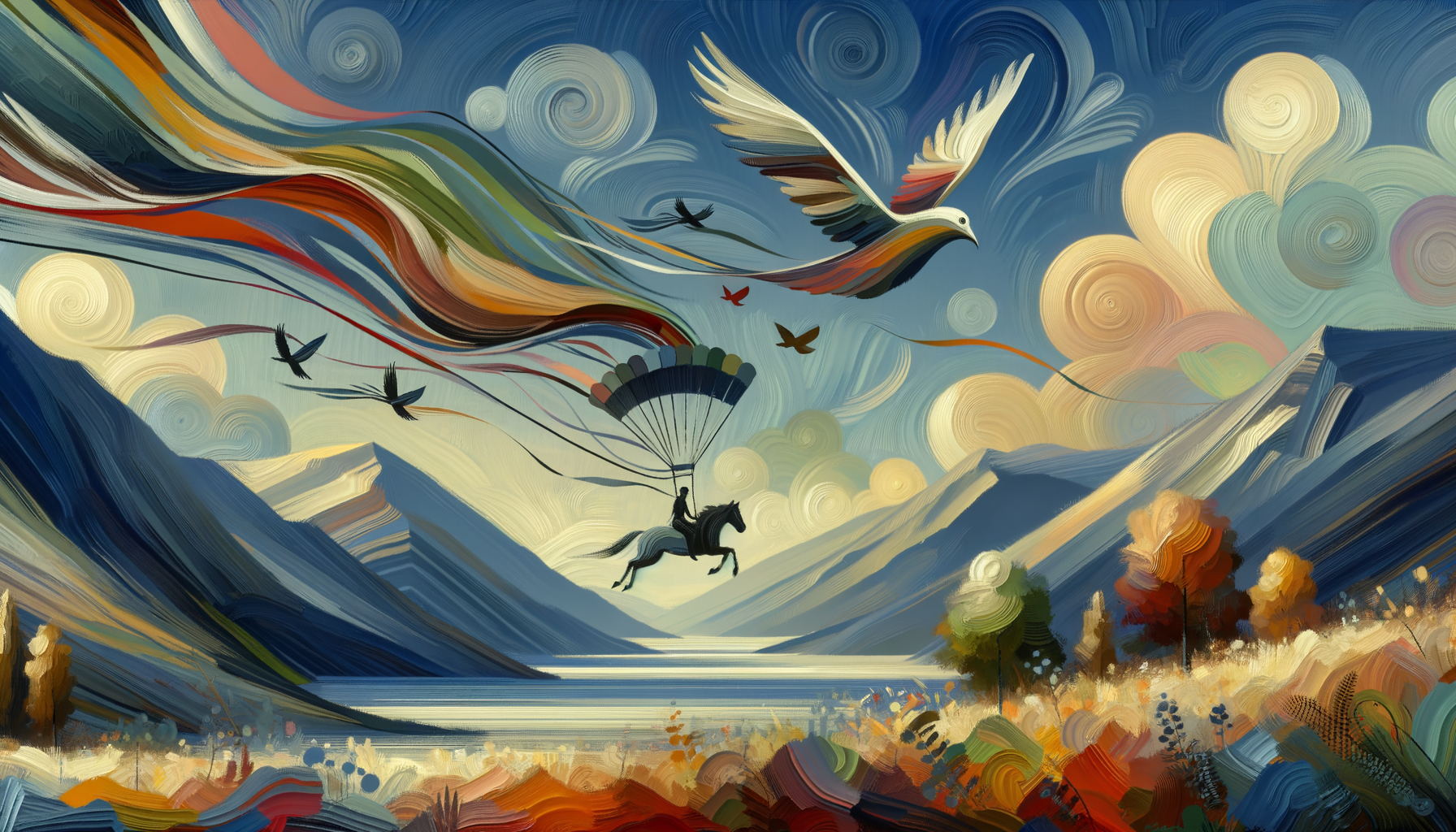It started with a lobster. Which isn't how I expected fear to introduce itself, but there it was: a perfectly ordinary summer day on Nantucket, a bucket full of seawater at my feet, and a lobster lunging from the depths like Poseidon’s vengeful pet. I was six years old, and in my defense, sea creatures as a whole don’t bother with cuteness. The claws! The antennae! The beady eyes that screamed, "I’m sizing you up as an appetizer!" That lobster kicked off what would become a lifelong fear: navigating unknown waters. Or, more specifically, uncertainty.
Fast-forward to my thirties, and it became clear my fear wasn't limited to lobsters. It was the metaphorical kind of murky water I avoided just as much: vulnerability, unpredictability, walking into situations where I didn’t know the outcome. Relationships especially. If there was even a chance of emotional whiplash, I’d sidestep to safer ground like a seasoned beachcomber dodging rogue waves. What I didn’t realize was just how much I missed by staying comfortable—and how that fear needed to be conquered, one step at a time.
Charting the Fear: Why the Unknown Feels So Terrifying
Fear, I’ve learned, is brilliant at disguising itself. It masquerades as "standards," "caution," or, on good days, "charmingly aloof." For years, I told myself that the reason I wouldn’t ask someone out at the bar—or share a vulnerable truth with someone I cared about—was pure logic. Why risk rejection? Why introduce messiness into my life when I could keep things neat? After all, I was a historian. My job was to examine the past, not hurl myself into unpredictable futures.
But as my friends (and a past therapist) liked to gently remind me, life isn’t a 19th-century whaling log you can endlessly edit and perfect. It’s the sea you’re thrown into, often without warning. There’s no map for building relationships, and trying to avoid all potential for hurt—or embarrassment, or wrong turns—means you avoid potential altogether. Love, connection, and growth come with a current. The moment you try to control every step, you’re adrift in the worst way.
Turns out, avoiding risk made me the human equivalent of Nantucket in January: beautiful in theory, but lonely.
The Tipping Point: A Lobster Trap of My Own Design
If I had to pick the moment everything changed, I’d point to a rainy spring afternoon in Boston. I was dating someone new, someone who (to my absolute horror) liked me back—like, openly. She wasn’t exactly shy about telling me, either. One night, during a dinner of oysters and clams (because of course irony had to dress itself as shellfish), she looked me dead in the eyes and said, “You know, it’s okay to admit you care. Or are you just afraid?”
Afraid? Me? The confident Nantucketite who could trace his family lineage back to harpoons and whale oil? But as I stumbled through a deflective joke about my "mysterious air," I realized... yeah. I was terrified. Because showing you care—or even just admitting feelings—means trusting that you won’t immediately get metaphorically pinched by yet another lobster.
I’ll be honest: The prospect of saying something honest that day felt scarier than the churning Atlantic during October gale season. But it also felt necessary, like there wasn’t much of a future if I didn’t. So, I did it. I told her I cared. She smiled. As simple as that—and not a single lobster claw to be seen.
What I Learned About Facing Fear (And Why It’s Actually Good For You)
No, I didn’t emerge from that dinner suddenly fearless or transformed into a daring romantic hero. But I did learn that confronting fears—especially ones rooted in uncertainty—has ripple effects. Overcoming the discomfort doesn’t magically shield you from future vulnerability, but it does leave you with a greater understanding of yourself. If you’re also someone who’s spooked by emotional risk, here’s what helped me:
-
Start Small: Jumping straight into the emotional Mariana Trench isn’t a great strategy. For me, the first step was opening up in smaller moments: voicing appreciation to a friend, or admitting, “Hey, what you said hurt my feelings.” Think of it as wading into the shallows before you brave deeper waters.
-
Stop Overanalyzing Rejection: Here’s the thing about risk: sometimes, it doesn’t go the way you want. There were times I opened up and didn’t receive the response I’d hoped for. But reframing those moments was key. Rejection isn’t personal failure—it’s just part of how we navigate relationships. Give yourself permission to flinch, then move forward.
-
Use Humor as Armor (Not a Shield): I used to hide behind humor, using every opportunity to dodge sincerity with a sarcastic deflection. But humor applied intentionally can soothe uncomfortable moments. Think of it like seasoning: a pinch transforms. A whole bucket? Overwhelming.
-
Focus on What’s Real, Not Imagined: My biggest enemy in tackling fear was always the story I’d create in my head about what might happen. If I let my imagination run unchecked, a simple coffee date could spiral into visions of Shakespearean rejection. Anxiety likes to pull you into hypotheticals; reality is usually far kinder.
-
Reward Yourself for Risks: Is it cheesy? A little. But I found that every time I leaned into discomfort—whether that meant having an overdue conversation or even asking someone’s number—I’d treat myself afterward. Sometimes that reward was as simple as indulging in a good book; other times, it was new running shoes. Either way, rewarding risk helped cement it as a habit.
Facing the Sea: What Love Teaches Us About Courage
Here’s the kicker: that girl with the oysters? It didn’t work out. I could pretend that tied everything up in a neat bow, but this isn’t that kind of story. It’s a better one. Because conquering my fear wasn’t about her—or any future “success.” It was about realizing what can happen when you unmoor yourself from safe clichés and dive into uncertainty anyway.
These days, I still think about lobsters from time to time: how ridiculous they seemed as a kid, and how strange this world really is when you pause to look. But like so many worries, that fear feels much smaller now. And if the sea has taught me anything, it’s this: you’re more buoyant than you think. Relationships, careers, dreams—they’ll always carry risk. But your capacity to stay afloat, to adapt, and to grow is greater than any storm you’ll weather.
So leave the bucket behind. Dip into the unknown. And maybe, just maybe—pause to laugh when the lobster lunges.




















